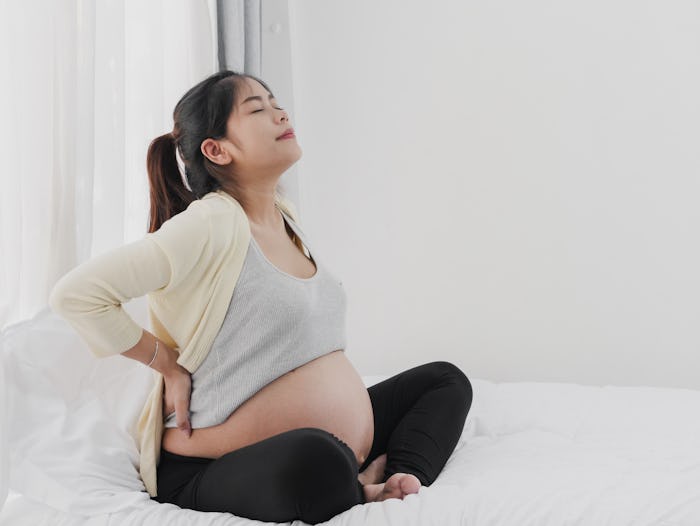Pregnancy

Does Your Heart Rate Increase With Pregnancy?
Seriously, what doesn’t increase with pregnancy?
My pregnancies were considered high risk because I had a stroke in my 20s. This, coupled with having an anxiety disorder, made for the perfect cocktail of angst and obsessing over every physical pregnancy change I felt. I will never forget lying in bed and jerking my husband from his book by shouting, “I think I’m having a heart attack!” I felt my heart pounding out of my chest. Was it anxiety? Was it a heart problem? I had never heard of the heart rate increasing during pregnancy so all I could think was that something was wrong.
Turns out I was experiencing heart palpitations that are normal during pregnancy. My doctor told me to just monitor the symptoms and keep him posted. Thanks, anxiety. But I learned your heart rate increases with pregnancy and there are other side effects with your heart during pregnancy as well. To spare you the anxiety, here’s why your heart rate increases with pregnancy and when you should be worried.
Why does your heart rate increase with pregnancy and when?
During pregnancy, your blood volume dramatically increases in order to provide more blood flow to the placenta, through which your growing baby receives oxygen and nutrients. Your heart has to pump harder and faster to ensure proper circulation. “The amount of blood pumped is called the cardiac output, and it increases by 30% to 50% during pregnancy,” Dr. Felice Gersh MD, OB-GYN, tells Romper.
The increase in your heart rate is typically measurable early in pregnancy during the first trimester, and as early as the first month you’re pregnant, adds Gersh.
Having heart palpitations are completely normal during pregnancy, as well. Fluttering, irregular heart rate, and pounding are common symptoms as your body is handling all this increased blood flow, according to the Cleveland Clinic.
What is a healthy and normal heart rate in pregnancy?
A normal adult heart beats between 60 and 100 times per minute, and the average rate in pregnancy stays within this range. “The heart rate increases from a baseline of around 70 beats per minute prior to pregnancy up to 90 beats per minute during pregnancy,” says Gersh.
A 2019 meta-analysis by BMC Medicine looked at heart rate increases in 36,239 pregnant people and found the average heart rate increase was around 10%, or 7 to 8 beats per minute.
“The study also found that the average heart rate rises steadily through pregnancy. At 10 weeks, the average heart rate was 79.3 BPM. By 40 weeks, the average rate was 86.9 BPM,” according to Medical Today.
When should you be concerned about your heart rate?
You should contact a healthcare provider “if your heart rate exceeds 100 beats per minute and stays elevated, as well if there is chest pain, nausea, fainting or severe lightheadedness, a very irregular beat, and/or extreme pounding,” Gersh says.
When does my heart rate go back to normal after pregnancy?
“Labor and delivery add to your heart's workload, too. During labor — particularly when you push — you'll have abrupt changes in blood flow and pressure,” according to The Mayo Clinic. “It takes several weeks after delivery for the stresses on the heart to return to the levels they were before you became pregnant.” Gersh says it can take as long as a month.
So don’t worry, having an elevated heart rate is pretty typical with pregnancy. Obviously call your healthcare provider if you’re concerned, but don’t add onto the heart palpitations and elevated heart rate by having a panic attack like me. Your heart rate will go back to normal around a month after you’ve had the baby.
Expert:
Dr. Felice Gersh MD, OB-GYN and founder/director of the Integrative Medical Group of Irvine, in Irvine, California, and the author of Menopause: 50 Things You Need to Know.